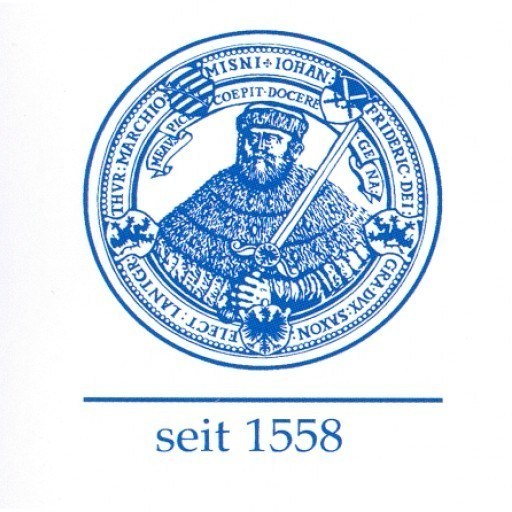Photos of university / #uni_southampton
Photonics BEng (Hons) at the University of Southampton offers a comprehensive education in the science and engineering of light, covering a wide range of topics from optics and laser technology to photonic devices and systems. This undergraduate programme is designed to equip students with both theoretical knowledge and practical skills necessary for a career in the rapidly evolving field of photonics, which plays a crucial role in telecommunications, medical technology, manufacturing, and more. Throughout the course, students will engage with core subjects such as wave optics, semiconductor devices, optoelectronics, and optical communications,building a strong foundational understanding of how light can be generated, controlled, and applied in various technological contexts. The programme emphasizes hands-on learning through laboratory work, project-based assignments, and internships, providing real-world experience that enhances employability upon graduation. In addition to technical skills, students develop critical thinking, problem-solving, and teamwork abilities, preparing them for multidisciplinary roles within industry and research sectors. The curriculum is regularly updated in collaboration with industry partners to reflect the latest advancements and trends in photonics technologies. Students also benefit from state-of-the-art facilities and laboratories at the University of Southampton, one of the leading institutions in scientific research. Opportunities for industrial placement and study abroad are available, enabling students to gain international experience and industry insight. Graduates of the Photonics BEng (Hons) programme are well-positioned to pursue careers in optical communication companies, laser manufacturing, medical device industries, research and development, and academia, or to continue their studies with a postgraduate degree. With the increasing demand for photonics expertise in various sectors, this programme provides a solid foundation for a dynamic and innovative career in the field of light-based technologies.
The BSc Photonics at the University of Southampton offers a comprehensive and innovative curriculum designed to equip students with a deep understanding of the fundamental principles and cutting-edge applications of photonics technology. Throughout the programme, students explore a wide range of topics including optics, laser technology, optical communications, photonic devices, and imaging techniques. The course combines theoretical knowledge with practical laboratory skills, enabling students to design, analyze, and implement photonic systems across various industries such as telecommunications, healthcare, manufacturing, and defense.
During the first year, students build a strong foundation in physics, mathematics, and engineering principles, which are essential for understanding the complex behaviors of light and photonic components. The second year expands on these concepts, introducing modules focused on optical signals, photonic materials, and the basics of laser technology. Students gain hands-on experience through laboratory experiments and project work, fostering problem-solving skills and technical competence.
In the final year, students have the opportunity to specialize in areas such as integrated photonics, fibre optics, laser systems, or optical sensing. The curriculum emphasizes innovation and real-world application, preparing graduates for careers in research and development, product design, or further academic studies. Additionally, the programme includes a substantial project that encourages students to apply their knowledge to real-world challenges, often in collaboration with industry partners.
The programme benefits from state-of-the-art facilities and laboratories, providing students with vital practical experience in photonics research and manufacturing processes. Furthermore, Southampton’s extensive links with industry ensure that students are well-prepared for the demands of the modern photonics sector. Graduates of the programme are highly sought after by employers across technology, manufacturing, scientific research, and consultancy sectors, capable of contributing to advancements in optical communication systems, biomedical imaging, laser manufacturing, and environmental sensing. With a blend of rigorous academic training and practical exposure, the BSc Photonics at the University of Southampton offers an excellent pathway for students passionate about working at the forefront of optical technology innovation.
A minimum of 120 UCAS tariff points from at least one A-level (or equivalent qualification), including at least a grade B in Mathematics, is required for entry onto the Photonics BSc programme. candidates with alternative qualifications such as International Baccalaureate, BTEC, or equivalent will be considered on a case-by-case basis, with relevant subject knowledge and skills evaluated during the admission process. Applicants are expected to demonstrate a strong interest in physics and engineering principles related to photonics and optoelectronics. Prior experience or relevant coursework in areas such as optics, electromagnetism, or electronic engineering can enhance an applicant's suitability. English language proficiency is mandatory for international students, with a typical requirement of IELTS score of 6.0 overall, with a minimum of 5.5 in each component. The programme also values analytical skills, problem-solving ability, and enthusiasm for practical laboratory work, which are assessed through personal statements and references. A-level Physics is highly regarded and preferred; however, applicants from other scientific backgrounds with relevant knowledge may also be considered. The admission process may include an interview or written assessment to evaluate motivation and understanding of the subject matter. The programme aims to attract students with a genuine interest in developing advanced skills in photonics technology, optical communication systems, laser physics, and related fields. Candidates are advised to consult the specific entry requirements for the current application cycle and ensure all documentation, including transcripts, personal statements, and references, are submitted accurately and by the stated deadlines. Overall, the university seeks committed individuals with a robust foundation in mathematics and physics, eager to pursue cutting-edge research and innovation in the rapidly evolving field of photonics.
The University of Southampton offers a range of financing options to support students enrolled in the Photonics degree programmes. Prospective students can explore various sources of funding to help cover tuition fees and living expenses throughout their studies. Tuition fee payments can typically be made through standard methods such as bank transfer, credit or debit card, and sometimes via installment plans, depending on the student's domicile. International students are encouraged to investigate scholarships and grants specifically designed for overseas applicants, which may be awarded based on academic merit or other criteria. The university provides information about scholarships dedicated to engineering and physics students, including dedicated awards for programmes related to Photonics and optical sciences.
In addition to university-specific funding, students are advised to explore external funding opportunities such as government-sponsored grants, general student loans, and industry sponsorship schemes. The UK government offers various loan options for domestic students, including undergraduate loans that can be used to finance tuition fees and living costs, which are repayable after graduation based on income. For international students, scholarship programs from government agencies or international organizations may be available, often requiring application well ahead of the course start date.
Students may also consider part-time work opportunities available through the university's career service, which can help supplement their income during studies. The university provides comprehensive financial guidance, including orientation sessions and personalized support, to assist students in planning their finances effectively. Additionally, Southampton has active alumni networks and industry partners who sometimes offer sponsorship or internships that include financial support or stipends, providing valuable experience and funding during the programme.
Overall, students should carefully review the specific eligibility criteria, application deadlines, and requirements for each funding source. The university's dedicated financial aid office provides detailed, up-to-date information on available scholarships, bursaries, loans, and employments, ensuring students can access the most relevant financial support tailored to their circumstances. Prospective students are encouraged to begin their financial planning early to maximize their options and ensure smooth progress through their Photonics degree programme.
Photonics at the University of Southampton is a multidisciplinary undergraduate program designed to provide students with comprehensive knowledge and practical skills in the field of light-based technologies. The course integrates principles from physics, engineering, and optics to prepare graduates for careers in high-tech industries such as telecommunications, healthcare, manufacturing, and research. Throughout the program, students explore foundational topics including the properties of light, laser technology, optical components, and photonic devices. Practical laboratory sessions and project work are crucial components, allowing students to develop hands-on experience with optical measurement techniques, laser systems, and photonic circuit design.
The curriculum also covers modern applications of photonics, such as fiber-optic communications, imaging systems, sensors, and biophotonics, reflecting the rapid technological advancements in these fields. Students have opportunities to engage with cutting-edge research, often involving partnerships with industry leaders and research institutions, to deepen their understanding of real-world challenges and innovations. The program emphasizes the importance of research skills, teamwork, and problem-solving capabilities, preparing graduates to contribute effectively in multidisciplinary teams or to pursue further postgraduate study.
Facilities at the university include state-of-the-art laboratories equipped with advanced optical and laser equipment, enabling students to undertake independent projects and experimentation. The university’s location and industry links provide excellent opportunities for internships and placements, fostering industry-relevant skills and networking. The program also offers pathways to postgraduate research and professional development, supporting career opportunities in academia, industry, and R&D sectors. Overall, the Southampton Photonics degree aims to develop highly skilled graduates with a solid theoretical foundation and practical expertise to innovate and excel in the dynamic photonics industry.







